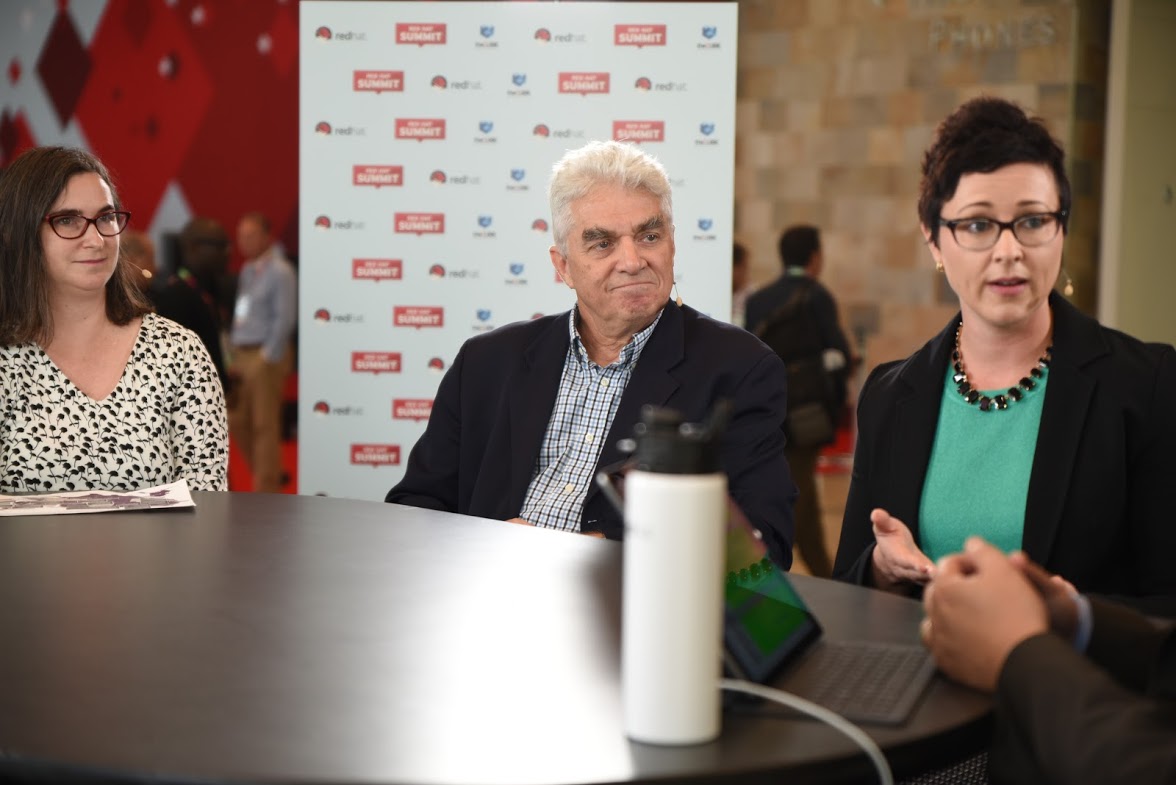 NEWS
NEWS
 NEWS
NEWS
 NEWS
NEWS
Even the most routine visit to the doctor’s office can cause many people to worry, much less managing a serious chronic health condition. Oftentimes this nervousness combined with complicated instructions can cause patients leaving their appointments feeling overwhelmed and underprepared. A national initiative called OpenNotes is working to change that by allowing patients access to their doctor’s notes once they leave their appointment.
“It is a movement to bring openness to the healthcare system,” said John Santa, director of OpenNotes dissemination at Beth Israel Deaconess.
A panel of those working with OpenNotes joined Stu Miniman (@stu) and Brian Gracely (@bgracely), cohosts of theCUBE, from the SiliconANGLE Media team, during Red Hat Summit. Also joining Santa on the panel were Amy Fellows, owner and principal consultant of Fellows Health Connect, LLC; and Liz Salmi, a brain cancer blogger and director of communications for the Coalition for Compassionate Care of California.
OpenNotes certainly had an impressive test run, with 99 percent of the initial patients deciding they wanted to keep that access. They felt more engaged in their care, better able to take their medications as prescribed, and in the end, even the providers themselves decided to keep their notes open.
In terms of quality of care and safety, it even allows patients to catch errors in their own medical records, added Fellows. Now 7 million patients take advantage of the software.
After being diagnosed with brain cancer, Liz Salmi scourged the Internet looking for more information. Just like shopping for a big item, many people will look for opinions and experiences of people that had the same condition. Having the OpenNotes allows patients to compare what they were told with what they found elsewhere, instead of simply trying to recall the conversation. It keeps patients engaged and lets them “go back and have a two-way conversation [with their provider] about what [they’re] learning,” said Salmi.
Because of this, the relationship becomes more of a partnership toward a common goal, and more trust is formed. OpenNotes “works out well. Getting people to trust it is hard,” said Santa. “It involves [doctors] giving up control, which goes against their nature. We are working to overcome that.”
In the end, it’s the patients who have control, and Santa urges any patient to ask for their notes. Individual patients can have the most impact on whether or not providers try this new way of operating.
Watch the full interview below, and be sure to check out more of SiliconANGLE andtheCUBE’s coverage of the Red Hat Summit.
THANK YOU